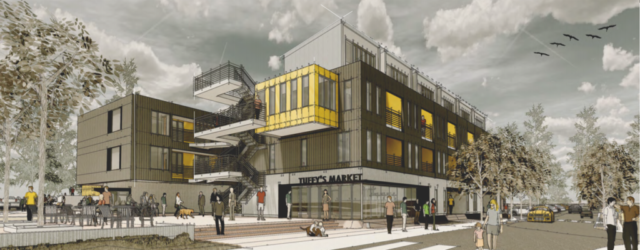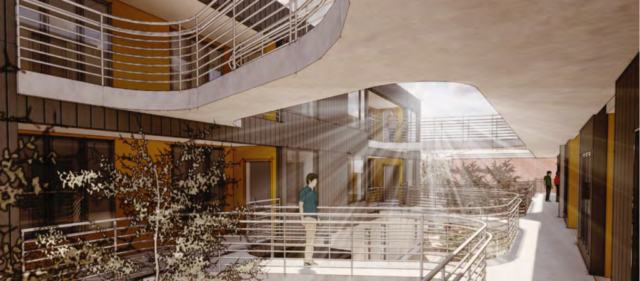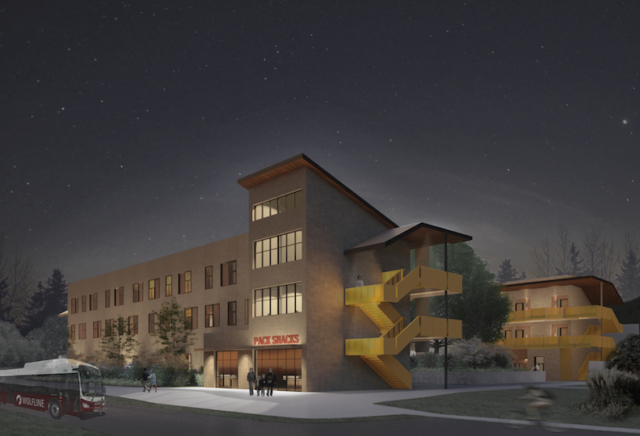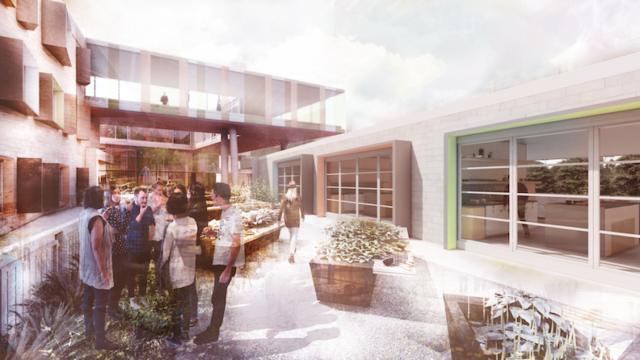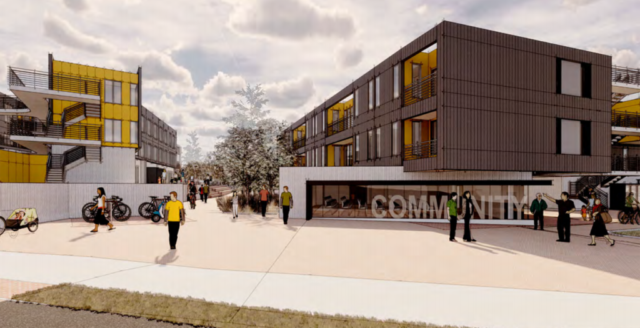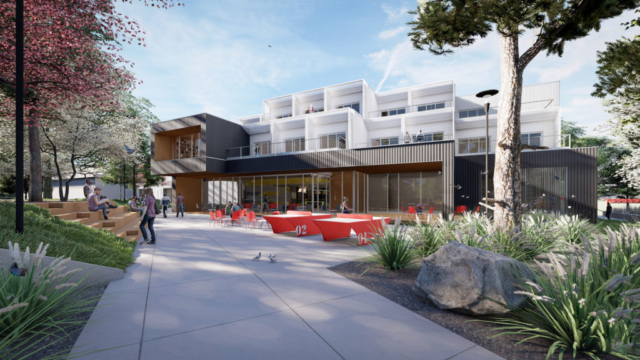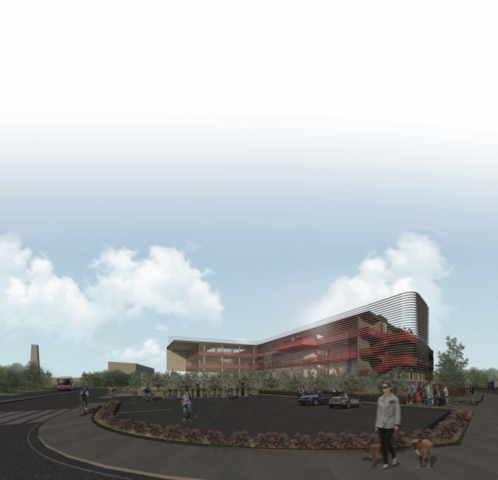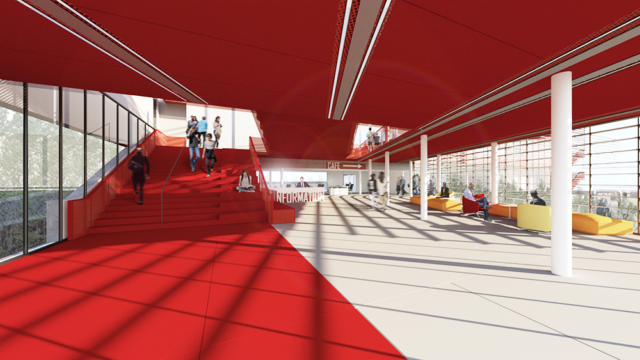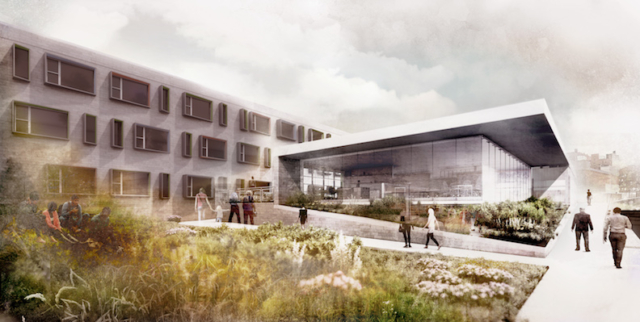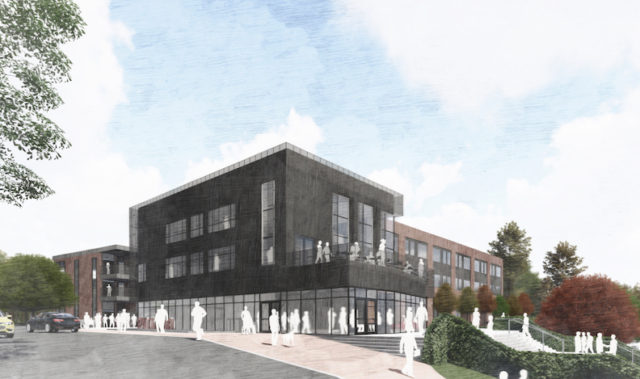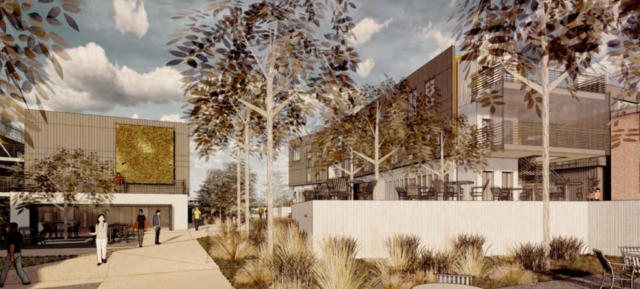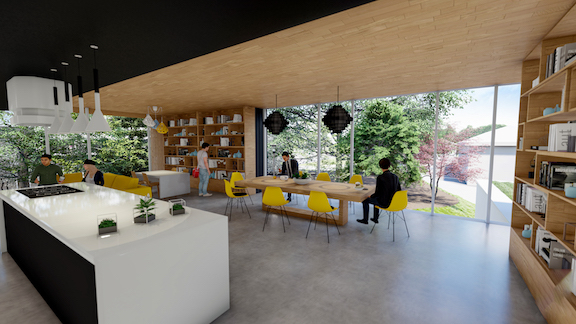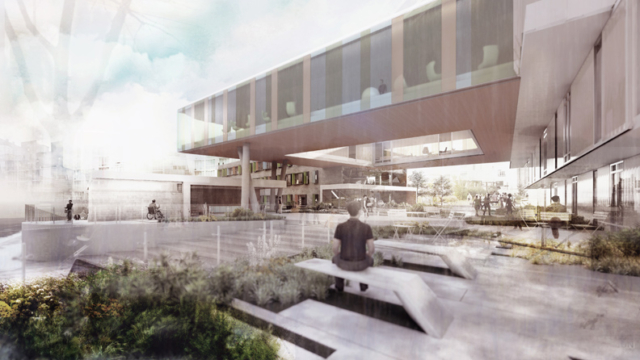Affordable and Supportive Housing for NC State Students
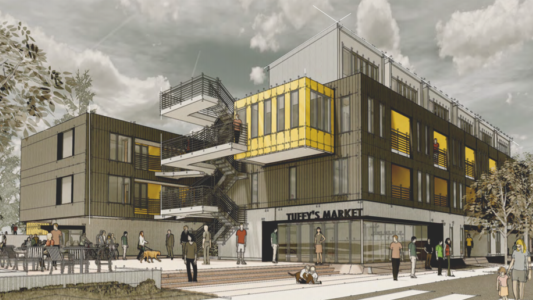
The lack of affordable housing is a national problem. There is also a significant need for affordable, adaptable, and alternative housing options for university students. In the past decade, or so, there has been an emphasis on boutique university housing that includes a range of luxury amenities. During this same time, housing and living costs have risen while financial aid funding has remained flat. Some universities have responded to the growing student housing crisis, including NC State.
In 2017, the NC State Food and Housing Security Initiative was created by faculty, students and staff to research and propose solutions to student housing and food insecurity. A survey conducted in 2017 revealed that almost 10% of students experienced periods of homelessness in a twelve-month period. Homelessness can be short-term or chronic and can include doubling up, staying in shelters, or sleeping in cars and in unsheltered locations. The causes of homelessness are complex but in most cases, are the result of housing costs exceeding what individuals and families can afford. When one is housing cost-burdened, defined as paying over 30% of one’s income on housing, a medical emergency, job loss, parents separating, or other unexpected emergencies, can mean missed rent payments and eviction proceedings. As more low-wealth students enter the university, there will be an increasing need for affordable housing options. Supportive services to assist students in responding to challenges, navigating resources, and supporting their educational goals will also be needed.
The Affordable + Supportive Student Housing for NC State project is an outcome of the Food and Housing Security Initiative’s findings and recommendations. During the fall semester of 2019, eleven advanced architecture students conducted research on innovative university and multifamily housing and designed demonstration projects for two university-owned campus sites, which include a range of unit types, community spaces, and supportive services. The studio envisioned approaches to student housing that were not only about filling real needs but also creating leading-edge, innovative, and timely student housing.
Project Team
- Project Director: Thomas Barrie AIA, DPACSA, Professor of Architecture
- Studio Critic: David Hill FAIA, Head, School of Architecture
- Food and Housing Security Initiative Liaison: Mary Haskett, Professor of Psychology, CHASS
- University Architect Liaison: Tom Skoiniki RLA, University Landscape Architect
Students
Maan Alzamel, Keval Amin, Joshua Basham, Ryan Cooper, Caroline Cox, Daniel Garrett, P.K. Hensel, Pat Meiburg, Caroline Towns, Jacci Valino, Tori Vick
Project Outcomes Poster
Affordable Housing for NC State
Press
Food and Housing Security Initiative Documents
- Call to Action – Pack Essentials_Brief
- Call to Action_Study Food and Housing Security
- NC-State-Food-and-Housing-Insecurity-1
Selected Projects
Research
Student teams researched examples of innovative university housing, affordable housing, and micro-housing. Their findings were compiled in videos and presentation boards.
